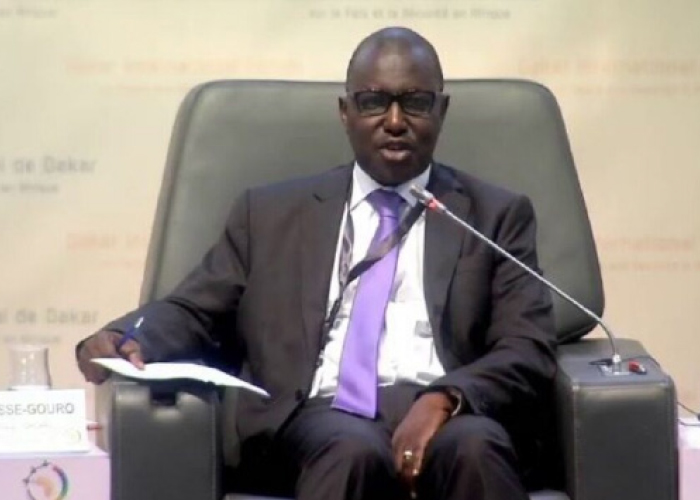Mahamane Cissé-Gouro, Officer-in-Charge of the Field Operations and Technical Cooperation Division of the Office of the High Commissioner for Human Rights said on Monday that while Afghanistan should have moved closer towards peace, civilians continued to suffer and lose their lives due to increased violence.
Delivering the high commissioner’s report to the UN Human Rights Commission’s 46th session on Monday, Cissé-Gouro noted the conflict in Afghanistan remained among the deadliest in the world.
He stated the best way to protect civilians was to stop fighting.
According to the report the deliberate killing of human rights defenders and journalists had been particularly shocking in the last few months and since the start of the Afghanistan peace negotiations.
Civil society and media had an important role to play, the Afghan people needed their voices and opinions, and the government needed to provide them with space to operate, while anti-government forces must stop targeting them, the report stated.
Speakers expressed concern that since the start of the Afghan peace negotiations, civilians continued to bear the brunt of the armed conflict, with almost half of the casualties being women and children.
Cissé-Gouro also stated Afghanistan was at a critical point which was particularly crucial for Afghan women. He said their meaningful participation in the peace process must be ensured.
In addition, it was noted that the Afghan Independent Human Rights Commission (AIHRC) played a crucial role despite their staff being directly targeted.
In turn, Afghanistan Independent Human Rights Commission (AIHRC) Chairperson Shaharzad Akbar’s said in a video message to the session that for the peace process to be seen as credible by all Afghans, there needs to be a ceasefire, a real possibility of public engagement, and protection of the civic space.
In her message Akbar said according to AIHRC figures, targeted killings were the second leading cause of civilian casualties in Afghanistan in 2020. This she said was a “threefold increase compared to 2019.”
These attacks targeted human rights defenders, journalists, media workers and activists, prosecutors and judges, including female journalists, judges and activists.
“Prominent activists are either being killed or forced to leave the country. Most attacks remain unclaimed and investigations are slow.
“While those who can, are leaving the country, many across Afghanistan felt silenced by fear and are constrained in their activism. This unimaginable attack on Afghanistan’s civic space is ongoing and the world is not doing enough to stop it.
“Meanwhile the Afghan negotiations in Doha are paused,” she said.
“Afghans are desperate for peace but what will peace look like in absence of one of Afghanistan’s most important gains, its vibrant civil society and human rights community? If this deadly trend continues, it will be even harder to protect human rights gains of Afghanistan during and after the peace talks.
“We need the United Nations and the global human rights community to stand with Afghans and urge both parties to stop the violence, and continue engaging in talks.
“For the peace process to be seen as credible by all Afghans, we need a ceasefire, a real possibility of public engagement and protection of the civic space,” she said.
Cissé-Gouro stated in his report that the Afghanistan peace negotiations were an historic opportunity for parties to the conflict to consider the irreversible loss the war had had on the people. New thinking could save thousands of families from suffering.
The report meanwhile stated that Afghanistan, speaking as a country concerned, noted that the conflict in Afghanistan continued to take a heavy toll on the nation and undermined social and economic progress.
The COVID-19 pandemic had also further aggravated these challenges. (ATN)
Home » Afghanistan » UN Rights Session Hears Afghan Conflict Still One of the World’s Deadliest
UN Rights Session Hears Afghan Conflict Still One of the World’s Deadliest

